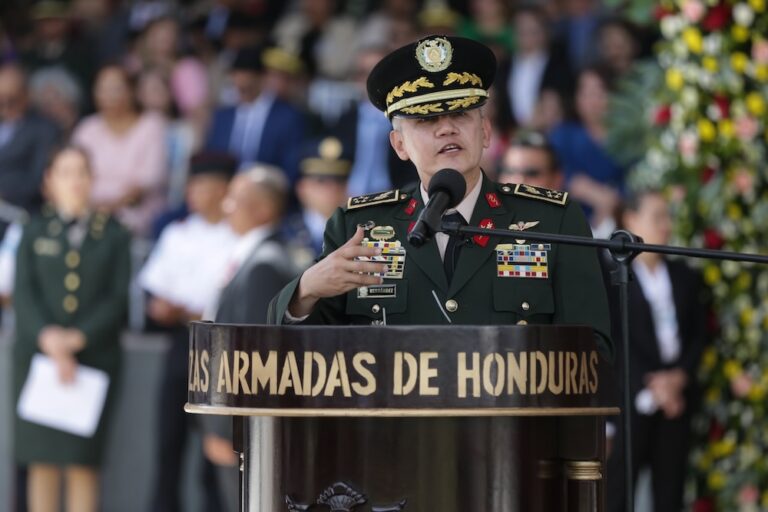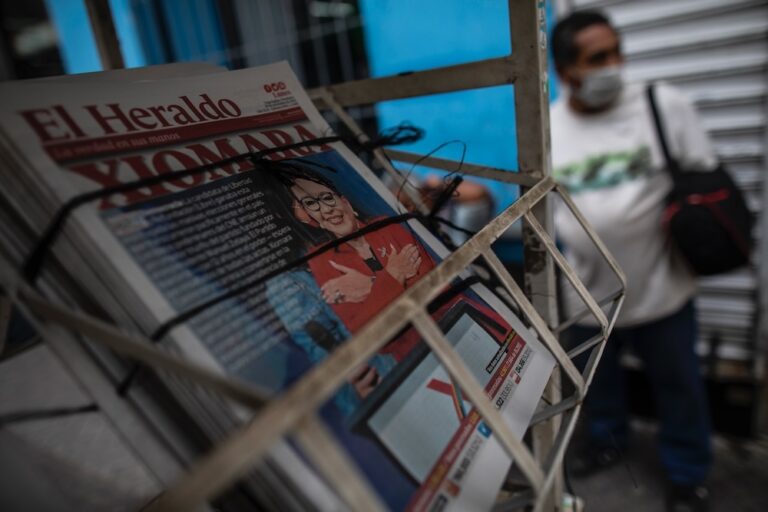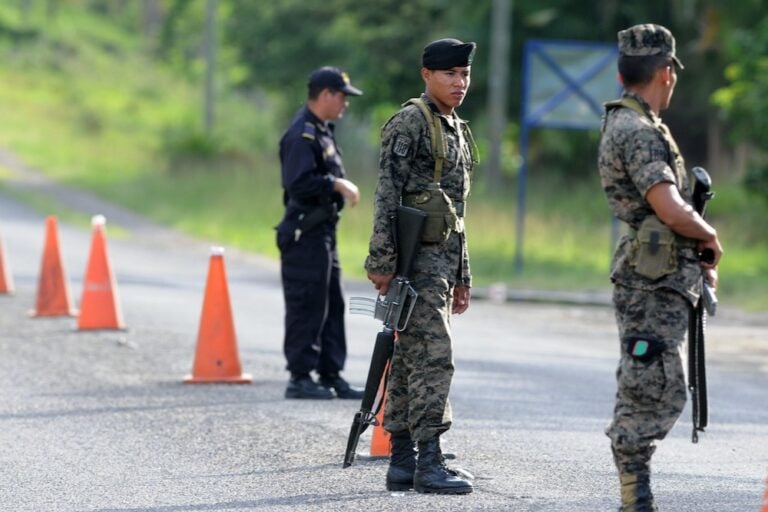The Inter-American Commission on Human Rights has adopted a precautionary measure in favor of Honduran journalist Julio Ernesto Alvarado, who was ordered to stop working as a journalist for 16 months after he reported on alleged wrongdoing by a university dean.
The Inter American Press Association (IAPA) today welcomed a decision by the Inter-American Commission on Human Rights (IACHR) to adopt a precautionary measure in favor of Honduran journalist Julio Ernesto Alvarado, who was ordered by a Honduran court to stop working as a journalist for 16 months after he reported on alleged wrongdoing attributed to a dean of the Honduras Autonomous National University (UNAM).
The IACHR took the action on November 5, calling on the Honduran government to suspend the court order and abstain from “carrying out any action to disqualify the journalist” until the Commission reaches a decision on the petition it had received on the case. The IACHR declared that prima facie the matter comprised the “serious aspects, urgency and irreparable harm” that justified its action.
IAPA’s President Gustavo Mohme, editor of the Lima, Peru, newspaper La República, expressed his “satisfaction with a decision whereby the Inter-American system reactivates the protection of journalists who tend to be silenced by libel suits brought by public officials.”
“This decision,” Mohme added, “creates important precedents for judges to better review lawsuits that seek to subject journalists to prior censorship when they are investigating and reporting on corruption in areas of public interest, as occurs in Peru and Brazil, among several other countries.”
On October 4 the IAPA deplored the punishment of the journalist and criticized the lack of commitment by the government of Honduras regarding promises made to decriminalize libel, calumny and defamation offenses.
“To prevent journalists from doing their work is equivalent to taking us back to the most absurd forms of censorship that used to be practiced in past centuries,” said Claudio Paolillo, Chairman of the IAPA’s Committee on Freedom of the Press and Information and editor of the Montevideo, Uruguay, weekly Búsqueda.
The IACHR received the request for precautionary measures to be taken in favor of the journalist on May 29, claiming violation of his freedom of expression and legal guarantees and protection, citing the American Convention on Human Rights.
“After reviewing the allegations submitted by the petitioners the Commission considers that the information presented shows prima facie that the rights of Mr. Julio Ernesto Alvarado are seriously threatened and at urgent risk of irreparable harm,” the IACHR said in its precautionary measure No. 196-14.
During a 2006 broadcast of the television program “Mi Nación” (My Nation) by Globo TV, hosted by Alvarado, two UNAM professors, Guillermo Ayes and Gustavo Villela, accused Economic Sciences dean Belinda Flores Padilla of “arbitrary actions” and of having been “implicated in the trafficking of university degrees,” “found in a rigged master’s degree”, and involved “in the award of rigged degrees.” Flores Padilla then sued Alvarado in court, accusing him of “defamation and libel.”
A court of first instance ruled in favor of Alvarado, warning that the information about Flores Padilla had not been “made up by him”, but rather that he had limited himself to “reporting what was said in a report by a committee investigating irregularities in the granting of certain benefits to students at the university.”
But in 2011 Flores Padilla filed an appeal and in December 2013 the Supreme Court reversed the lower court’s ruling and declared that Alvarado had “exceeded the normal limits in the exercise of press freedom” and had “intentionally” caused “harm to the reputation” of Flores Padilla. The Supreme Court then sentenced Alvarado to 16 months in prison, and an additional punishment of “deprivation of his civil rights and special disqualification” for the same period.
Alvarado appealed, and in April of this year an enforcement judge granted him “definitive freedom” by commuting the prison sentence to a fine and also acquitted him of the additional penalties. In the following month Flores Padilla appealed this ruling and in August the Appeals Court admitted the former dean’s request. In September, Alvarado was notified that the ban on his work as a journalist remained in force.
Alvarado last month filed a procedural complaint with the Supreme Court, arguing that his “constitutional rights” were being violated. But the court has not yet responded.
In its November 5 decision the IACHR warned that the information that had given rise to Alvarado’s conviction “is related to a matter that presumably was of public interest, correctly, on the suitability of a person for holding public office.” In addition the IACHR said, “the journalist was not held to have been the author of the information considered offensive to the reputation of the public official in question, rather that he was considered to have been limited to transmitting statements or information by third parties on his television program.”
“The use of criminal court mechanisms to punish statements concerning matters of public interest, and especially about public officials or politicians, violates Article 13 of the American Convention, as there is no imperative social interest to justify it and “it is unnecessary and disproportionate,” the IACHR said.
The agency recalled that “to have recourse to criminal court tools to punish specially protected statements is not only a direct limitation of freedom of expression but also can be considered as an indirect method of restriction of expression for their intimidating, silencing and inhibiting effects on the free flow of ideas, opinions, and information of all kinds.”
The IACHR said that “the gravity of the situation arises from the imposition of a secondary punishment capable of preventing the journalist from “exercising his freedom of expression for a period of 16 months, which could amount to a situation of prior censorship.”
The Commission added that “given its gravity and the censorship that goes with it, the carrying out of this sentence not only impedes Alvarado’s right to freedom of expression, but it has the effect to render ineffective the exercise of the right to express oneself and to disseminate information about matters of public interest in Honduras.
This conviction would have a silencing effect regarding all people and particularly journalists, who would be subjected to a constant self-censorship before reporting on something that could offend the reputation of those occupying public office. This could compromise the freedom of expression of Honduras society altogether, it declared.


